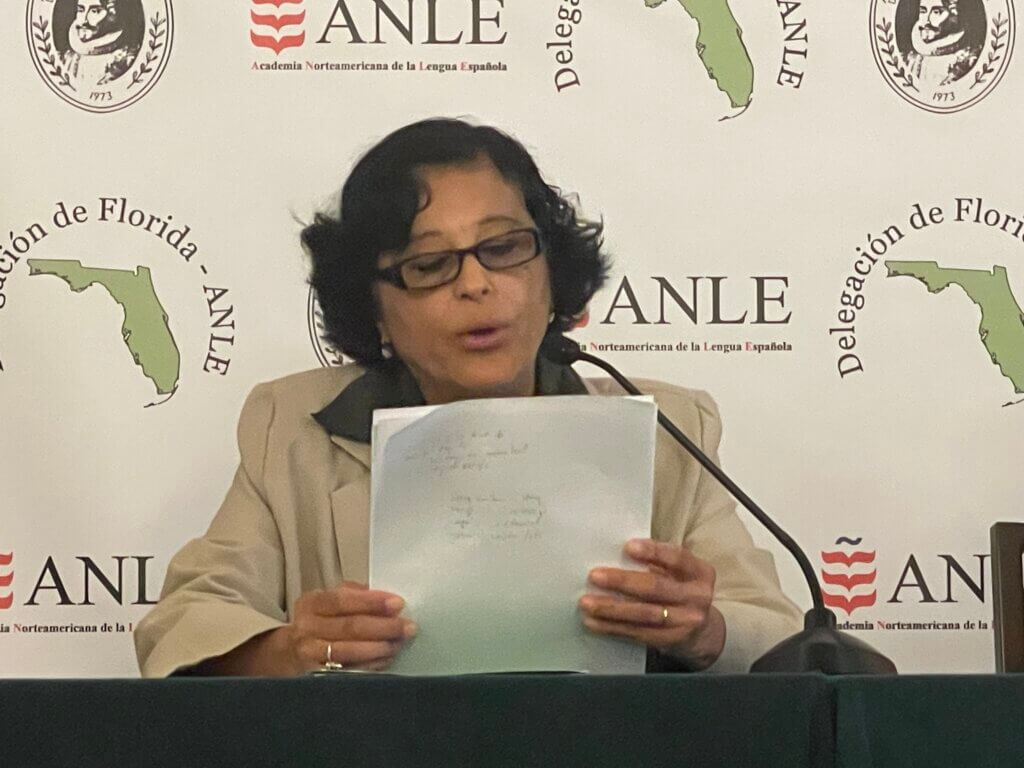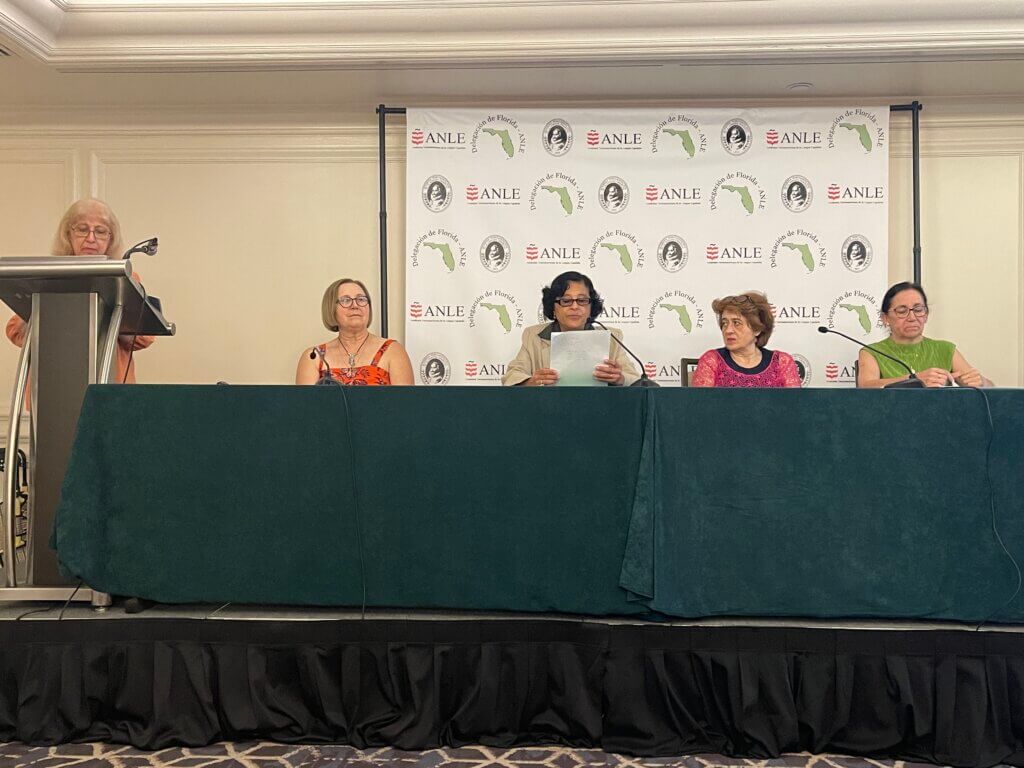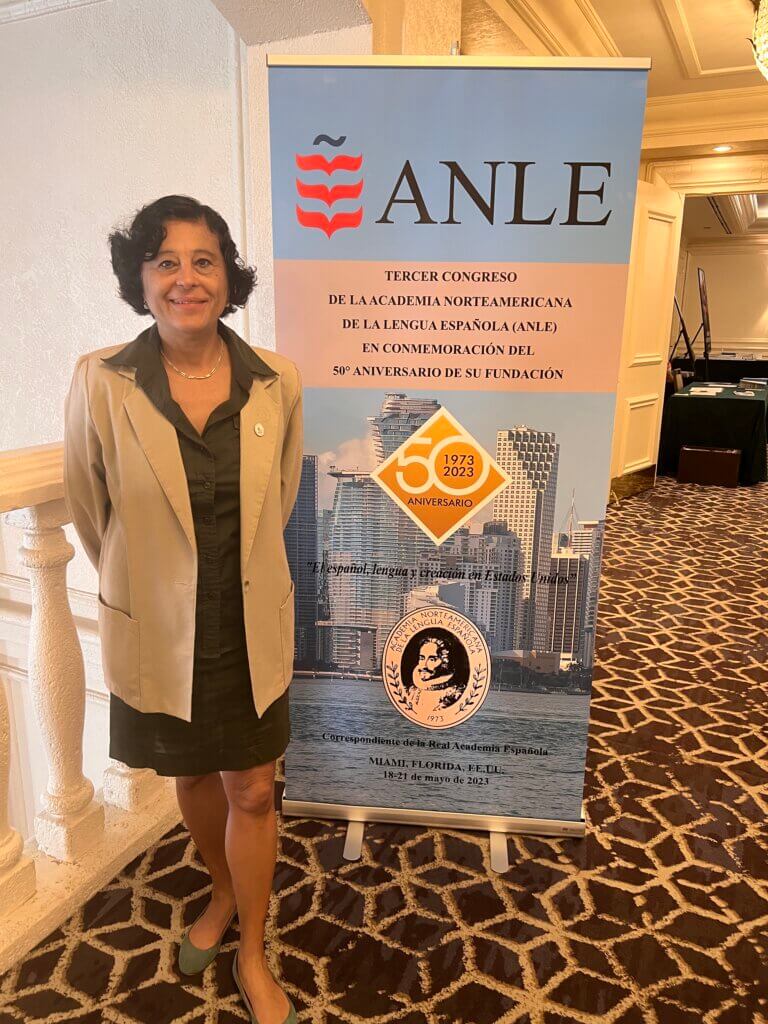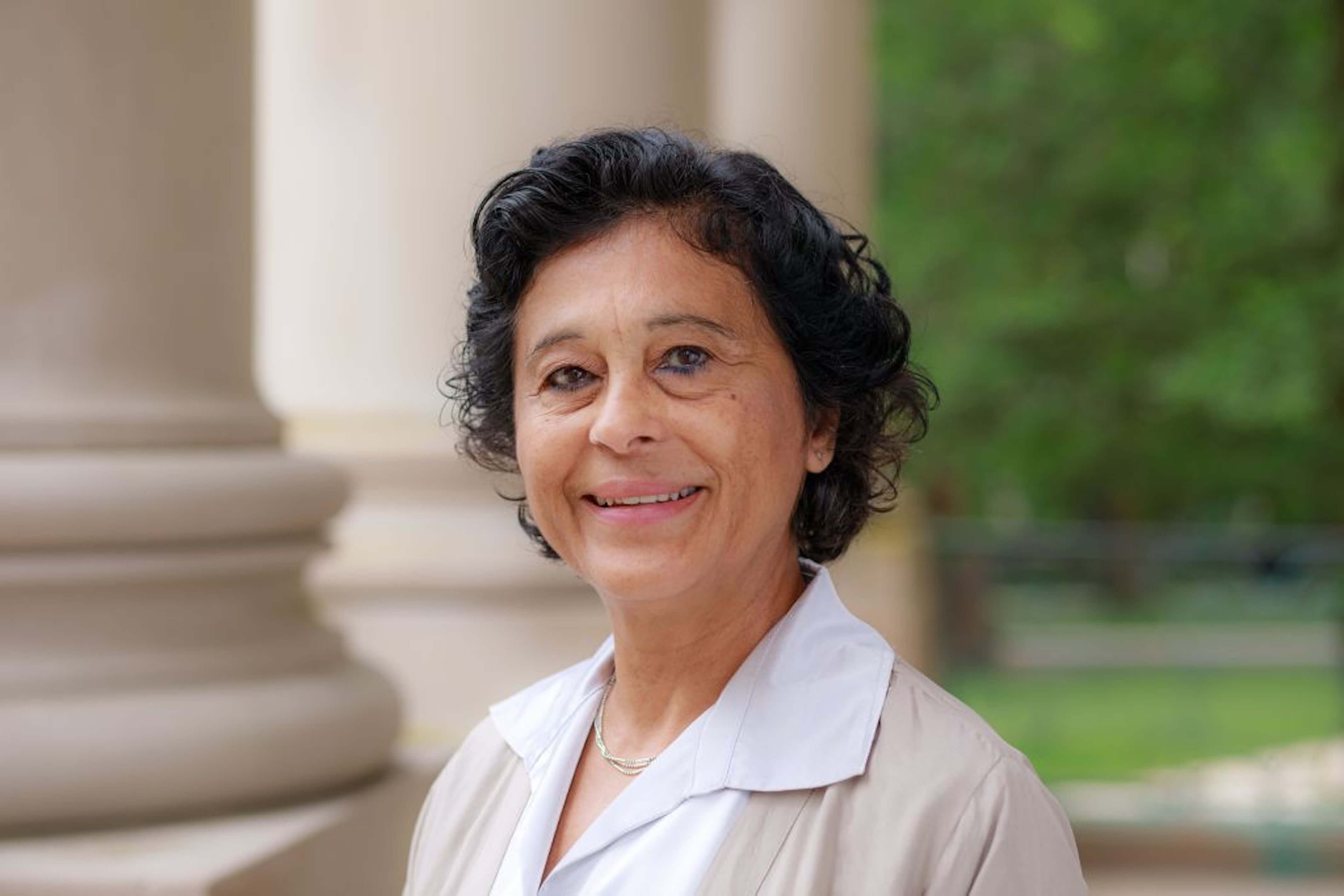Priscilla Gac-Artigas, Ph.D., professor in the department of World Languages and Cultures, presented at the Third International Conference of the Academia Norteamericana de la Lengua Española (ANLE) on May 20 in commemoration of the 50th anniversary of the institution. The ANLE is one of the 23 Spanish language academies within the Hispanophone world.
The theme of the conference was “El español, lengua y creación en los Estados Unidos.” Gac-Artigas, who is also a Fulbright Scholar and full member of the ANLE and correspondent member of the Royal Spanish Academy (RAE), delivered a paper entitled “Mecanismos de colectficción en dos obras de Pablo García Gámez y la metáfora del lenguaje inclusivo más allá del aspecto lingüístico.”
The goal of the paper was to apply the theory of collectfiction* to two plays by Venezuelan playwright, Pablo García-Gámez, Olvidadas (2019), and Las mártiras (2021). It analyzes the effectiveness of the author in using resources displayed in collectfiction works such as the metaphor of theatrum mundi, the mise en abyme, and the language as a manifestation of the biblical expression “the word became flesh…” to establish a transgressive reading pact that will promote the reconfiguration of the story as a collective experience. Through the use of those resources, in both plays the author achieves the “deindividualization” of the internal conflicts of the characters, members of a marginalized population within the LGBTIQ+ community, to give them a collective and political dimension. In both plays, García-Gámez bets on the power of an inclusive language emerging from reality to vindicate their existence within a hostile society that fights to rip them from their rights and make them disappear. And, whether it pertains to a specific group, such as the LGBTIQ+ community, as in the case of the two plays by García-Gámez, or an entire generational collective, this process holds.
In addition to her paper, Gac-Artigas was the chair of the panel “Orígenes, historia y permanencia del español en los Estados Unidos.”
*Collectfiction, a term she coined in 2017 to describe literary texts in which the authors propose to the readers a work of fiction that unfolds recognizable (auto)biographical, cultural, historical, and socio-political references either within the text and/or the paratexts, and, through experimentation with specific narrative, dialogic, or structural resources, they invite the readers to engage in a proactive reading and participate creatively in the reconfiguration of the story proposed. This reconfiguration of the story fosters the collectfiction of a historic period or collectivity in its temporal-spatial dimension. See: Colectficción: sobrepasando los límites de la autoficción. Iberoamericana Vervuert, Madrid 2022.




